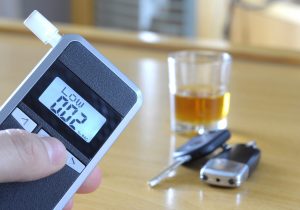
There is an added level of analysis when determining the impact of a Florida Keys driving under the influence (DUI) charge to one with a commercial driver’s license (CDL). When one is arrested for DUI and is the holder of a CDL, the arresting officer will submit notice to the Florida Department of Highway Safety and Motor Vehicles (DHSMV). Generally, this notice will inform the DHSMV that the driver either took a breath alcohol test that was over the .08 Florida legal limit or that the driver refused to submit to a breath test. The driver then has ten (10) days to challenge the imposition of the suspension to his or her driver’s license and CDL privileges.
The DHSMV will then hold a formal review hearing to make a determination as to whether the CDL driver was driving or in actual physical control of a motor vehicle with a breath alcohol level over .08 and/or refused a breath test that was requested of them. If the DHSMV makes the determination that a person was either over the limit or refused to take a breath test, pursuant to Florida Statute 322.264 and 49 CFR 383.51, then the DHSMV will suspend that driver’s license and his or her CDL privileges. The length of time that one’s CDL is suspended depends on whether or not it is a first offense, and whether or not the person was transporting hazardous materials at the time.
If it is a first offense and the driver was not transporting hazardous materials, that individual’s CDL will be suspended for a period of one year pursuant to 49 CFR 383.51. This suspension period is the same for an over the legal limit breath test as it is for a refusal.
If it is a first offense, but the person was transporting hazardous materials at the time, that individual’s CDL will be suspended for a period of three years, again pursuant to 49 CFR 383.41. This suspension period is the same for an over the legal limit breath test as it is for a refusal.
If it is a second offense, the driver would have his or her CDL privileges revoked for life, with the ability to reapply for CDL privileges after 10 years have elapsed and the person provides proof that he or she has successfully completed a state approved rehabilitation program.
